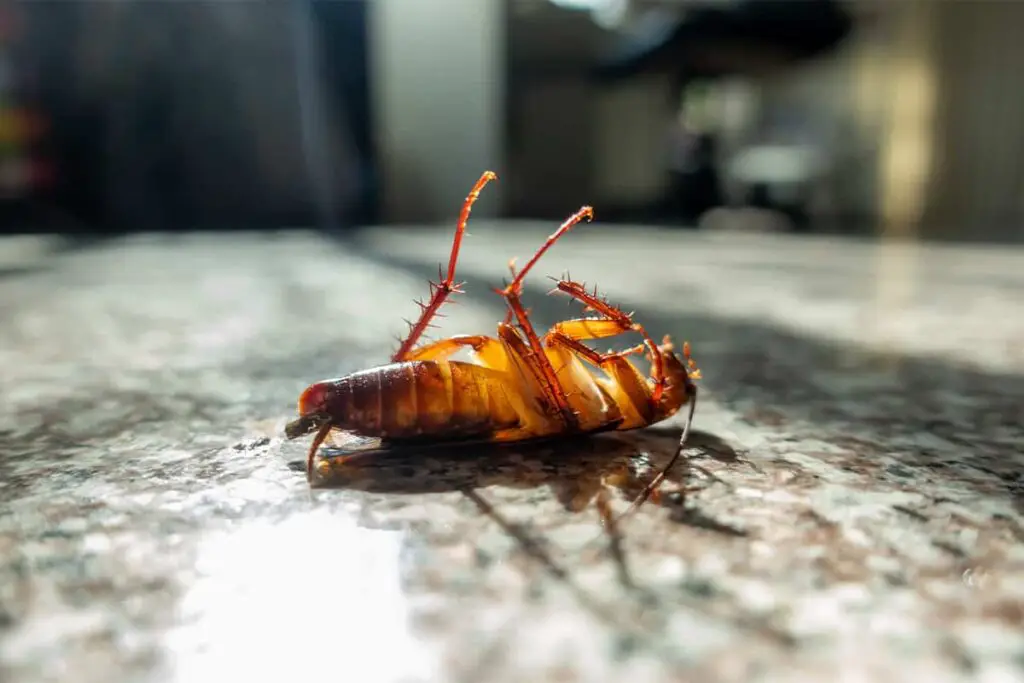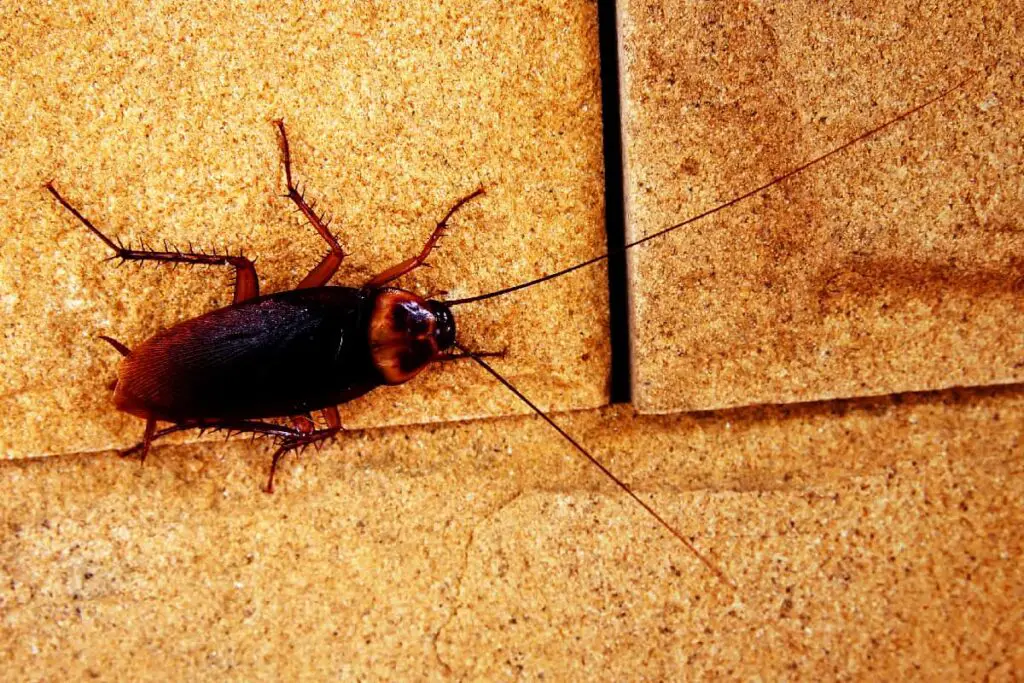Discovering your cat has ingested a cockroach can be worrying, especially if there’s a chance the pest may have been poisoned. While it’s natural for cats to chase and sometimes eat insects, the additional risk posed by poison can lead to anxiety about your pet’s well-being. The consumption of a poisoned cockroach could potentially introduce harmful substances into your cat’s system. Promptly assess the situation to determine the best course of action for their health.
The effects of eating a poisoned cockroach on your cat depend on the type of poison involved and the quantity ingested. Some household pesticides are designed to be less toxic to mammals, but they can still pose a risk, particularly to smaller animals. If you suspect your cat may have eaten a poisoned cockroach, it’s important to observe them closely for any signs of distress or unusual behavior that could indicate poisoning.
It’s always better to be cautious and seek professional advice from your veterinarian. They can guide you on specific symptoms to watch out for, such as vomiting, diarrhea, or lethargy, which might suggest that your cat is experiencing a toxic reaction. Early intervention is key in ensuring the best possible outcome for your feline friend. If you know or suspect the type of poison, communicate this to your vet, as it can greatly assist in determining the appropriate treatment.
Immediate Actions After Ingestion
If your cat has ingested a poisoned cockroach, immediate action is critical to minimize the risk of harm. Here’s what you need to do right away.
Assess the Situation
Determine how much and what type of poison your cat may have been exposed to. If possible, identify if the cockroach consumed household bait or a spray insecticide, as these details are crucial for treatment.
Isolate Your Cat
Keep your cat in a secure, quiet space to prevent further ingestion of poisoned insects and to monitor them closely for signs of poisoning such as lethargy, vomiting, or difficulty breathing.
Contact a Veterinarian
Reach out to your veterinarian or an emergency animal clinic immediately. If you have information about the type of poison, this will greatly assist the vet in providing prompt and accurate care.
Understanding the Poison
When your cat encounters a poisoned cockroach, the type of poison and the specific effects on your feline friend are critical to understand.
Types of Cockroach Poison
Cockroach poisons often contain insecticides that can be hazardous to your cat’s health if ingested. Common active ingredients include:
- Boric acid: A substance commonly used in cockroach baits and traps.
- Hydramethylnon: Found in many bait formulations, it disrupts energy production in insects.
- Fipronil: A widely used insecticide that targets the nervous system of pests.
It’s important to promptly identify the type of insecticide your cat may have been exposed to.
Effects of Various Insecticides on Cats
Different insecticides can cause a range of reactions in cats:
- Boric acid: Can lead to stomach distress, lethargy, or more severe symptoms if consumed in large amounts.
- Hydramethylnon: Usually less toxic to mammals, but in high doses, may cause vomiting or decreased activity.
- Fipronil: While generally used in pet flea treatments in low doses, higher exposure can result in irritation, seizures, or other serious conditions.
Recognizing the symptoms early and seeking veterinary care are crucial steps to ensure your cat’s safety.
Veterinary Treatment Options
If your cat eats a poisoned cockroach, prompt veterinary treatment is essential. Your vet can offer specific care to address the toxin ingestion.
Diagnosis Methods
Upon arriving at the vet, the primary goal is to identify the poison ingested. The vet may perform a physical examination and require knowledge of the cockroach poison involved. Laboratory tests may be necessary, including blood work or a urinalysis, to determine the toxin’s effect on your cat’s system.
Possible Treatments
Once the type of poison is identified, the vet might start with decontamination procedures like induced vomiting or administering activated charcoal to prevent further absorption of the toxin. If the poison has already been absorbed, supportive care such as IV fluids, medications to control symptoms, or antidotes (if available for the specific toxin) will be the next steps. Your vet might administer anti-parasitic treatments if there’s a risk of parasite transmission from the cockroach. Your cat’s recovery plan may also involve follow-up visits to monitor progress and prevent complications.
Preventing Future Incidents
Ensuring your cat’s safety means taking proactive steps to prevent any future incidents involving poisoned cockroaches.
Cockroach Control Alternatives
To keep your home pest-free without endangering your pets, consider natural deterrents such as peppermint oil, or a DIY solution of sugar and baking soda. For instance, a light mix of water and soap can act as a repellent. Additionally, integrating pet-safe cockroach traps in areas your cat cannot access will help mitigate the risk.
Safety Measures at Home
Regularly inspect your home for signs of pests and take immediate action if you spot any. Remember to store pesticides and toxic substances in secured cabinets to prevent accidental ingestion. Consider sealable food containers and tight garbage lids to reduce the attraction of cockroaches to your living spaces.
Frequently Asked Questions
If your cat has eaten a cockroach that’s been exposed to insecticide, it’s crucial to know how to respond promptly to ensure their safety and health.
What should I do if my cat consumes a cockroach sprayed with insecticide?
If you discover that your cat has consumed a insecticide-sprayed cockroach, you should contact your veterinarian immediately for advice tailored to your pet’s specific situation.
How toxic are household pest control substances to felines?
Household pest control substances can vary in toxicity to cats, but many common ingredients in cockroach baits may be harmful if ingested, possibly leading to serious health issues.
What symptoms will my cat show after eating a poisoned cockroach?
After ingesting a poisoned cockroach, your cat might exhibit symptoms like vomiting, diarrhea, or difficulty breathing, which require immediate veterinary attention.
Are the ingredients in cockroach baits dangerous to my pet cat?
Certain ingredients commonly used in cockroach baits, such as boric acid, hydramethylnon, and fipronil, can be dangerous to cats if consumed in significant quantities.
What immediate steps should I take after my cat has ingested a bug that may contain poison?
After your cat ingests a bug potentially containing poison, it’s important to observe your cat for any signs of distress and seek professional veterinary help as soon as possible.
What are the risks of boric acid ingestion in cats?
Ingestion of boric acid by cats, often found in cockroach poisons, can lead to toxicity, exhibiting signs such as vomiting, diarrhea, or even seizures in more severe cases.
Driven by a passion for those tiny creatures that rule our world, we at Bug Domain strive to be your go-to resource for information on insects.




